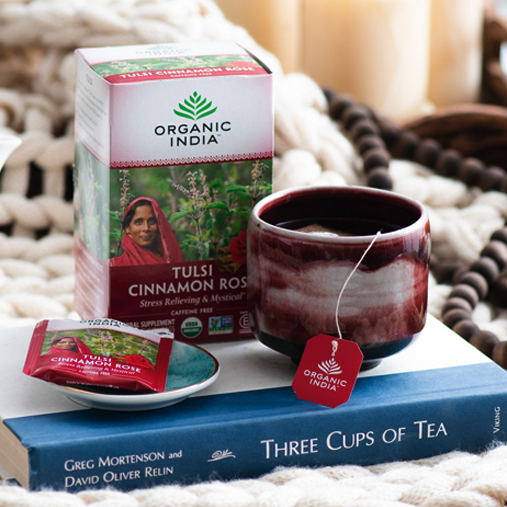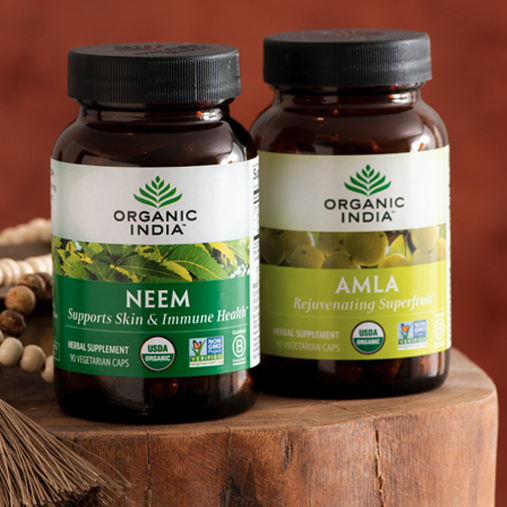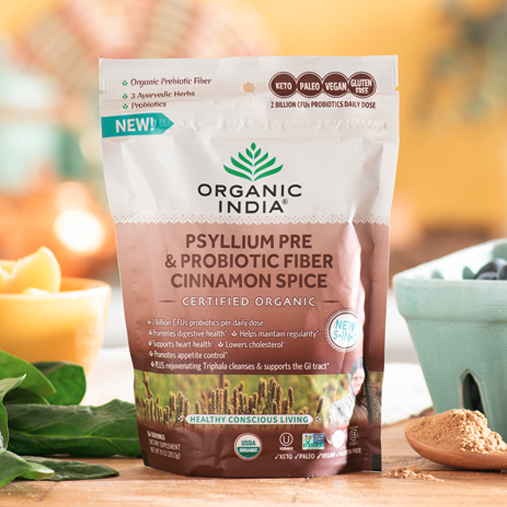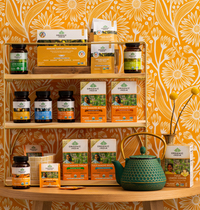Back
It seems like everywhere you look, people are talking about inflammation and gut health. It’s become a hot topic in the news and on social media. Every day, you can hear doctors, wellness coaches, and health gurus talking about the detrimental effects of inflammation on your gut health.
But to understand how inflammation and gut health are related, you must first understand what inflammation is and how gut health plays a role in managing inflammation.
What is inflammation?
Inflammation is a natural defense mechanism your body uses to protect itself from harmful bacteria, viruses, and injuries. In the first century B.C., a Roman scholar named Aulus Cornelius Celsus, identified four signs of inflammation: swelling, redness, heat, and pain. These signs, although they can seem troubling, are the immune system’s natural response. Once your immune system takes care of the issue, the body returns to homeostasis, and inflammatory chemicals fade away. It’s an incredible healing mechanism!
But in some cases, inflammation can get out of control and last for months or even years — long after the initial threat is gone. This is called chronic inflammation, and it can be extremely harmful to our body and its systems.
Chronic inflammation happens when an inflammatory response is triggered, but there is no threat to eliminate. When this happens, the immune cells can start attacking healthy cells and may cause diseases like rheumatoid arthritis, diabetes, asthma, and digestive issues.

How is gut health linked to inflammation?
Your small and large intestines are home to trillions of microbes. These microorganisms include bacteria, parasites, viruses, and fungi. In a healthy microbiome, all of these microbes live side-by-side in a harmonious symbiotic relationship. This community of bacteria affects how you digest food and absorb nutrients. It also protects you against infections and is essential to your immune health.
While the science of gut health and the microbiome is still relatively new, scientists have uncovered more about inflammation and how it is intimately linked to gut health. For instance, they estimate that around 70% of the immune system resides in the intricate world of your gut microbiome.
When that delicate balance of bacteria becomes unbalanced, it’s called dysbiosis. Dysbiosis can cause various digestive problems — like chronic constipation, unstable blood sugar levels, fatigue, and nausea. And this is where inflammation comes in.
What triggers inflammation in the gut?
A healthy gut is vital for digestion and absorbing nutrients, but it’s also intricately connected to our sympathetic nervous system. This system is activated when your body senses danger. For this reason, the gut is often called our “second brain.” Often, you’ll get a “gut feeling” before your brain steps in to take action.
Your immune system, primarily housed in your gut, automatically responds to harmful threats. When a virus or bacteria makes its way into your intestinal tract, the immune system mobilizes and sends out an army of cytokines to neutralize the threat. Sometimes this immune response is triggered by the foods we eat, like sugar and highly processed foods. And other times, environmental toxins can set off an immune response.
Chronic inflammation occurs when this immune response occurs too often. Remember the four signs of inflammation demonstrated by Aulus Celsus? When your gut is inflamed, this swelling, redness, and pain occur inside your gut lining. That is how chronic inflammation manifests itself and eventually causes the breakdown of the gut lining, allowing dangerous bacteria to flow into the bloodstream.

What are the signs of inflammation in the gut?
Chronic inflammation can be sneaky — you may not even realize your gut is inflamed. At first, you may feel mild to moderate digestive discomfort but dismiss it as something you ate that didn’t sit right.
Over time, inflammation may cause severe pain and gastrointestinal distress. If you know what signs to watch for, you can take action to reduce inflammation and support your immune system. Some signs that you may be experiencing inflammation of the gut are:
- Persistent bloating
- Abdominal pain
- Abdominal cramping
- Frequent urge to go
- Constipation or diarrhea
- Fatigue
- Reduced appetite
- Unintended weight loss
If any of these symptoms persist or your bowel habits change drastically, you should talk to your physician immediately.
4 tips to support a healthy inflammatory response in the gut
If you’re suffering from overactive inflammatory response symptoms, resolving these issues as quickly as possible is crucial. The good news is that there are several ways you can regain control naturally. Follow the simple steps below to promote a healthy inflammatory response in your gut.
1. Eat an anti-inflammatory diet.
Start by reducing your intake of highly processed foods. Refined carbohydrates, sugar, artificial sweeteners, and alcohol keep inflammation high. Instead, opt for food like deeply colored fruits, cruciferous vegetables, spices like turmeric and black seed powder, and healthy fats like olive oil.
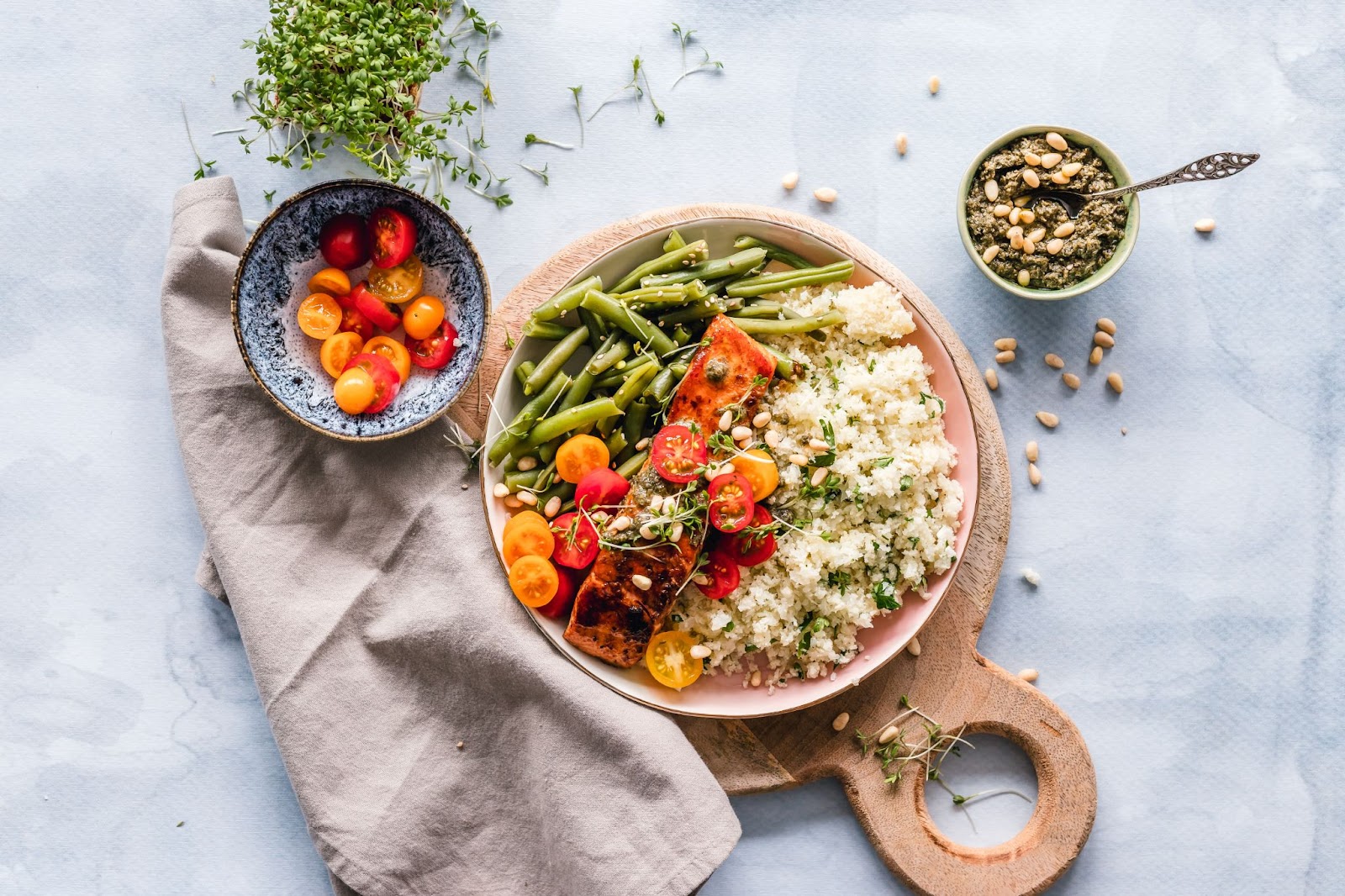
2. Reduce stress.
When you experience emotional or physical stress, your nervous system initiates your innate “fight or flight” response. If stress and pressure are ongoing, inflammation can remain elevated. Reduce stress by finding ways to relax, even if it’s only for five minutes. Try some deep breathing techniques, go for a walk, stand up and stretch, or implement a yoga and meditation practice into your weekly routine.
3. Take prebiotics and probiotics.
One way to support a healthy immune response and nurture a healthy gut microbiome is to ensure you get adequate amounts of prebiotic fiber and probiotics. Prebiotic fiber helps the good bacteria in your gut grow. And when you add a good probiotic, you’ll create a healthy balance of good gut microbes and keep your intestinal barrier and immune system strong.
4. Incorporate herbs.
For centuries, Ayurvedic practitioners have used herbs to help alleviate excess inflammation. Although many herbs and spices aid in a healthy inflammatory response, both turmeric and black seed powder have exceptional qualities for supporting digestive health.
- Turmeric. Turmeric is probably one of the better-known herbs that comes to mind. Packed with over 300 active compounds, it has powerful antioxidant properties and is a remarkable medicinal herb that supports a healthy inflammatory response.
- Psyllium. Psyllium is a natural prebiotic that helps cleanse the digestive tract and nurture a healthy gut microbiome. It has been the go-to herb for gastrointestinal wellness and healthy elimination for millennia and is a rich soluble and insoluble fiber source.
- Black Seed Powder. There is a lesser-known herb that is extremely powerful when it comes to promoting a healthy inflammatory response. It’s a spice called Kalonji or black seed powder. Black seed powder is a source of complete nutrition used for thousands of years in Ayurveda. It balances immune-inflammatory pathways and helps protect against oxidative stress.
It’s essential to take care of your microbiome by supporting the delicate community. Your gut microbiome will thrive when you reduce stress, eat a healthy balanced diet free from processed foods, and incorporate herbs that specifically support a healthy inflammatory response.
Keeping a healthy inflammatory response in check depends mainly on the health of your gut microbiome. Many stressors, like processed foods and environmental toxins, wreak havoc on the symbiotic relationship of the microbes in your gut.

